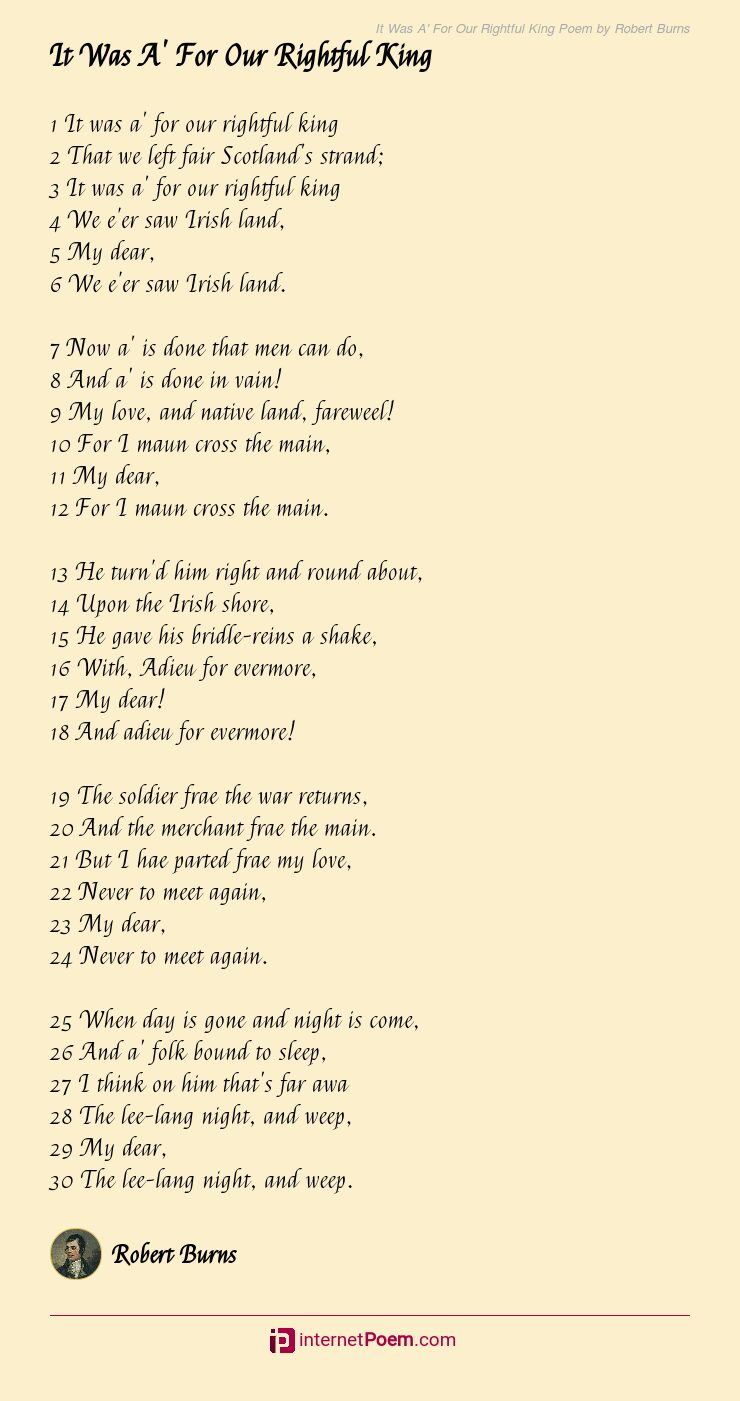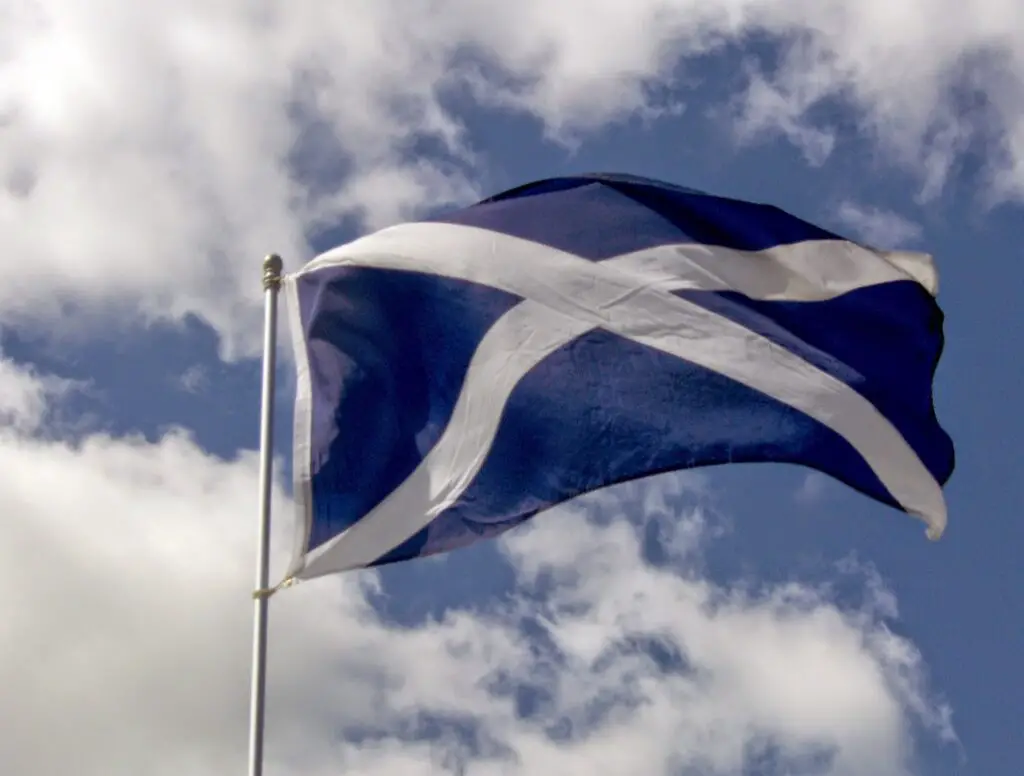Robert Burns is a Scottish poet and also a nationalist poet. He has many masterpieces that become popular and these all represent the country Scotland.
“It was a’ for our Rightful King” is one of the best poems of Burns. By the title, we, the readers can get to know that maybe the poet would be talking about their ‘Rightful King”.
Summary
The poem consists of a total of five stanzas and each stanza is having six lines. So in the first line, the poet repeats the title of a poem that means all the things they did was for their rightful king.
For the rightful king, ‘we’re or the poet and countrymen leave their Scotland’s strand. They leave the soil for the king the again repeats.
“We e’er saw Irish land,
My dear,
We e’er saw Irish land.”
By these three lines, Burns here tells that they have gone from Scotland and now they all see the Irish Land where they will leave. In the next stanza, where the poet is saying that everything is done that men can do and all have been done in vain. Now the poet is uttering,
“My love, and native land, fareweel”
So, we can get to know that the poet is leaving his own country and that is his native country and also his love. Maybe the poet is going to cross the border and going to Ireland for a living.

There a question comes that why the poet is leaving the country. This is maybe for the king who let them get out of the country.
“He turn’d him right and round about,
Upon the Irish shore,
He gave his bridle-reins a shake,”
Then he turned the person right and round to go upon the Irish land. The poet perhaps is being blown over the Irish land. And they he gives a shake to his ‘bridle-reins’.
Maybe here the poet wants to stay long for himself. This is how he is leaving the country and bidding the country farewell by ‘adieu to evermore’.
Then at the beginning of the fourth stanza, he is saying that a soldier is coming from the war to his land and he comes from the merchant of the main.
Only the poet has prayed from his country to whom he can never meet again. So, these lines are very nationalistic because the poet does not want to leave the country for him wise.
“When the day is gone and night has come,
And a’ folk bound to sleep,
I think on him that’s far awa
The lee-lang night, and weep,”
In the last stanza, he states something else about his life how he would be living. When the day would be gone and night will come he may miss the soil of Scotland. When he will fall asleep perhaps he may weep for the country because the country where he is living is not his own.
Addressing the country as ‘my dear’ he is uttering that he will be weeping. Here the poem stops with a sad end.
Theme
Love for the country is the main theme of the poem that the poet highlights. The country is like a mother figure to the poet for that he was living but for the time being, he is needed to leave the country. So, love for the country is being stressed here.
Analysis and Critical Appreciation
If we go through the details of the poem will see that the poet is letting the readers aware of the fact that the ‘Rightful King’ is not good for them who is provoking his countrymen to leave the country.

This is the person who made the war and for them, the poet is leaving the country without making any harm. So, it is true that the poet loves his country so much. But here he also produces an irony.
Literary Devices
A literary device is that part of a poem that makes the outside furnished and rhythmic. Here, Burns also does the same to make his poem much pleasure to the readers.
Robert Burns follows a rhyming pattern ‘ababcb’. Except we have many rhetorical devices that gain the attention of the readers.
Syncope is one of the major rhetorical devices that means writing a word by using an apostrophe. Here, Burns expresses the words using apostrophe just like, “e’er”, “turn’d”, “that’s”, etc.
Then comes imagery as a literary device. The images that come to us are of Scots and Ireland. When the poet is bidding farewell is the best scene that comes as a picture.
Alliteration is another relevant poetic use that means writing a ling using the same sounds one after another like,
‘maun cross the main”
Here, the ‘m’ sound is repeated.
Anaphora is also an excellent example of a poet device that means the repetition of the same words at the beginning of two lines like,
“The lee-lang night, and weep,
The lee-lang night, and weep,”
So, they are all devices that are being used.